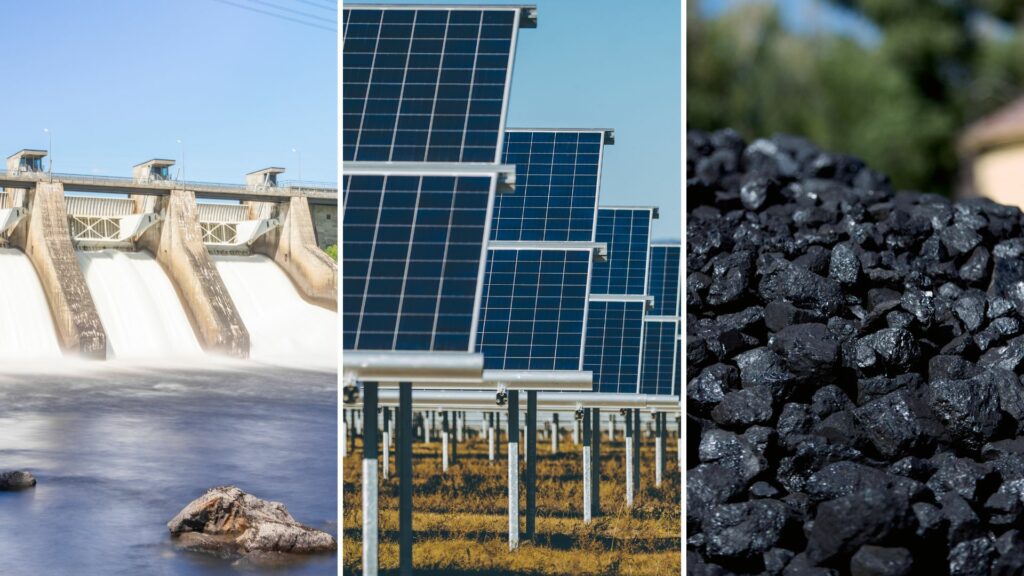On the eve of COP27, academics from 50 institutions called for a change in the way politicians, financiers and researchers think about the transition to clean energy on the African continent, while challenging the single narrative that has been applied to the continent until now.
In the study Africa needs context-relevant evidence to shape its clean energy future, scientists point out that until now, the Global North has dominated talks about energy in Africa, and in doing so have viewed the continent as a homogenous entity with similar needs throughout and virtually non-existent energy policies.
The authors of the study prove these misconceptions wrong by examining the energy systems of a few sample African countries.
The VUB researcher, Professor Sebastian Sterl looked at two neighbouring countries, Burkina Faso and Ghana, to show just how different two neighbouring countries can be.
Sterl explained that in Burkina Faso, "access to electricity in rural areas is less than 5%. Hybrid systems with solar panels and diesel generators can be a cost-effective way to support development."
In Ghana, on the other hand, there is a rural power grid with large hydropower plants and, recently, solar parks, which already supply power to 90% of the population. "What makes sense for Burkina Faso makes much less sense in Ghana," Sterl noted.
Western hypocrisy challenged
The study also highlighted the hypocrisy among Western leaders in pressuring African countries not to use fossil fuel reserves while they themselves cannot resist the temptation.
An example is seen in the UK, which has called for their remaining fossil fuels to be unlocked, in light of Russia's invasion of Ukraine and the associated uncertainty in gas markets.
"Some European countries are adopting ambitious decarbonisation strategies while rushing to invest in new natural gas infrastructure to meet short-term domestic fossil fuel demands," the study states, adding that several of those projects are in Africa. Understandably, this has prompted many African stakeholders to draw attention to the double standards of the Global North.
Different starting points
The study revealed that each African country has a different starting point in their journey to an energy sufficient future.
They also each face different solutions and uncertainties in using either renewables or fossil fuels to achieve their respective development goals. The path to success, therefore, will be different across borders.
Professor Youba Sokona, author and Vice-chair of the Intergovernmental Panel on Climate Change (IPCC) has described the generalisations as unhelpful. "Our research highlights that the international community must observe and support nuance and country-specific analysis to achieve development and climate goals in Africa."
Caution towards fossil fuel start-ups
The study also seeks to be a warning. It points out the consistency in research showing that renewable energy offers major benefits globally, including on the African continent. These benefits include growth and jobs, improved resilience to climate change and improved public health. This is in stark contrast to the proposition of the West for investment in natural gas.
"Sustainable alternatives are currently being developed around the world and will drive fossil fuels out of the economy in 20 or 30 years," Sterl believes. "For African countries, there has been too little research on the consequences of a fossil fuel economy start-up."
"With several African countries, including Mozambique, about to make long-term natural gas commitments, it is crucial that national leaders have the necessary information to make informed choices regarding economic, social and environmental objectives," said Dr Philipp Trotter of the Universities of Wuppertal and Oxford, who collaborated on the study.
Need for evidence-based visions
"The decisions these countries make now have implications for decades to come. Across Africa, there is now an urgent need for national, evidence-based visions of energy transitions," said Professor Yacob Mulugetta, lead author and professor of energy and development policy at University College London.
Related News
- Oil drilling in Congo: ‘We’ll keep our forests, you keep your dollars’
- COP27 countries agree to discuss 'climate compensation fund'
"This requires national leadership as well as research support and tailored funding. We hope this research will encourage African governments to adopt a longer-term vision for their energy system."
"COP27 will be an important climate summit for Africa," concluded Sterl. "It is now vital to learn from African expertise. We need to move away from unfounded, romanticised visions, such as the idea that all of Africa could skip the era of centralised power grids. We hope this research will contribute to that process."


